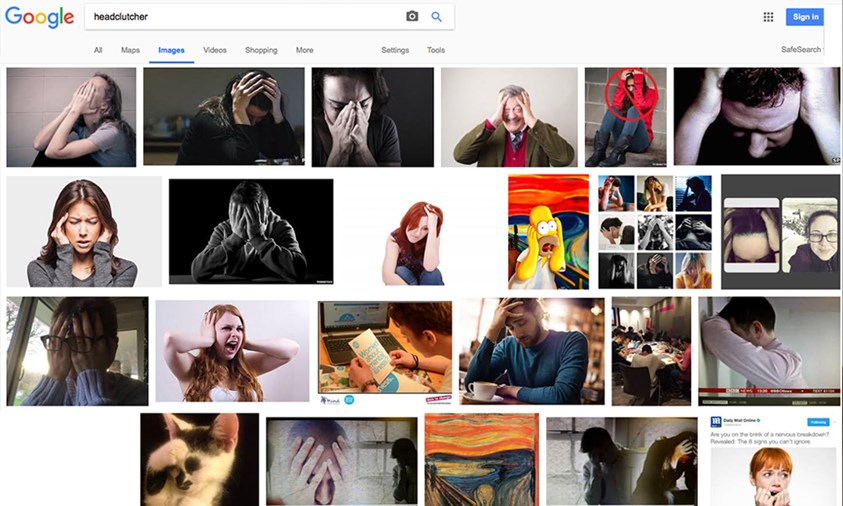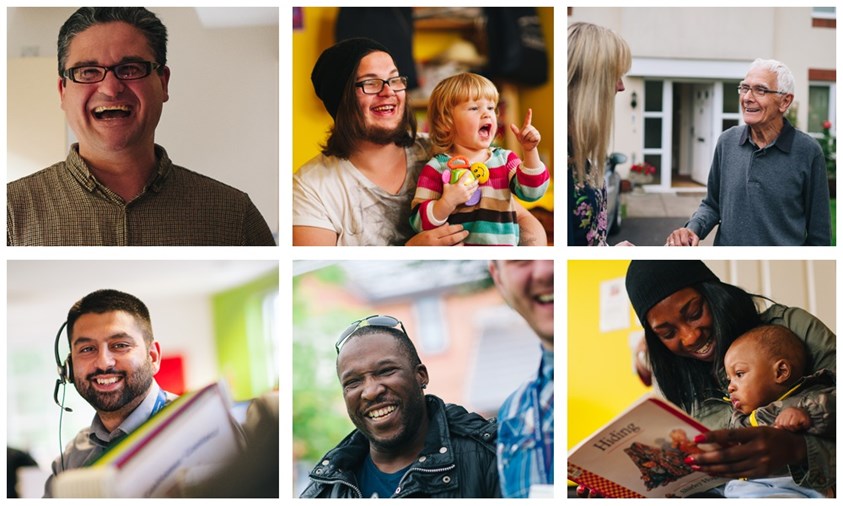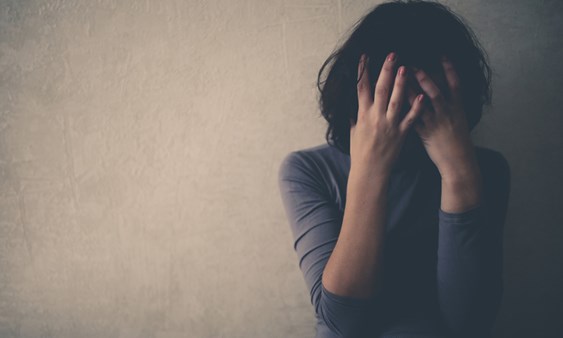A picture paints a thousand words
The content in this article may now be out of date. Please try searching for a more recent version.
It’s mental health awareness week and here, Bromford’s creative genius, Steve Barnes shares his thoughts on the use of images that portray mental illness in a negative way.
It feels like an unusual way to start a blog but I need to start this one with a quick test.
Nothing too taxing but I need you to do it for me.
We all know that ‘a picture paints a thousand words’ so what does the image below say to you?

Job interview or business meeting maybe?
What about this one?

Family holiday?
What about this?
I’m thinking that most of you thought depression, mental health or anxiety.
Not surprising really when you consider that a quick Google image search for ‘mental health issues’ brings up results like these…

Its an image that’s become known as ‘the headclutcher’ and its pretty prevalent throughout the media.
Everyone is guilty of using it, from The Guardian, the BBC and even the Daily Mail (they score bonus points for doing it twice in one article). Even I’ve used headclutcher images in the past. I wasn't sure how well they portrayed mental health but sometimes it’s very difficult to find images, be they stock or otherwise that supposedly sum up this subject.
But why?
Mental health isn’t something that can be seen so why do we expect to be able to show it in an image?
It seems fitting in mental health awareness week to highlight this topic as it’s something that has been brought to my attention recently and it’s a really difficult and sensitive issue to deal with.
Anyone who uses images to help tell a story has to ask themselves,
‘How does this image make people feel?’ and with regards to mental illness,
‘Does it help when trying to break down the stigma?
My thoughts are that rather than breaking down barriers and encouraging people to open up about their feelings, these images could do the exact opposite. There’s a pretty good chance that they are likely to deter people from seeking help because they reinforce the negativity around mental illness.
'People with mental health problems don’t look depressed all the time'
Any one of the people in the images below could be suffering with depression …

… you can’t tell just by looking.
Put simply, mental health is a vast and varied topic that affects 1 in 4 people in the UK annually, so why would we consider it suitable to sum it all up with one image.
Recently the ‘Get the picture’ campaign has been launched by a joint force headed up by Mind and Rethink Mental Illness with the hope of addressing this issue. They’ve created a library of images to provide picture editors and people like me with photos of real people who’ve suffered with a range of mental illnesses in a variety of situations and scenarios.
Hopefully it won’t be long before ‘the headclutcher’ image is a thing of the past.
